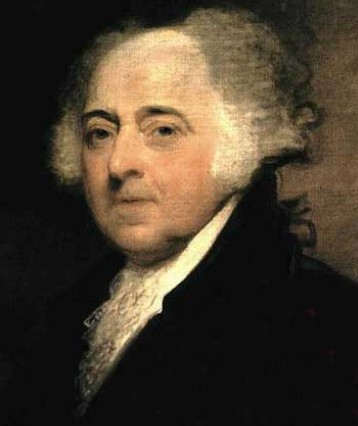The American Revolution was not a common event. Its effects and consequences have already been awful over a great part of the globe. And when and where are they to cease?
But what do we mean by the American Revolution? Do we mean the American war? The Revolution was effected before the war commenced. The Revolution was in the minds and hearts of the people; a change in their religious sentiments of their duties and obligations. While the king, and all in authority under him, were believed to govern in justice and mercy, according to the laws and constitution derived to them from the God of nature and transmitted to them by their ancestors, they thought themselves bound to pray for the king and queen and all the royal family, and all in authority under them, as ministers ordained of God for their good; but when they saw those powers renouncing all the principles of authority, and bent upon the destruction of all the securities of their lives, liberties, and properties, they thought it their duty to pray for the continental congress and all the thirteen State congresses, &c.
There might be, and there were others who thought less about religion and conscience, but had certain habitual sentiments of allegiance and loyalty derived from their education; but believing allegiance and protection to be reciprocal, when protection was withdrawn, they thought allegiance was dissolved.
Another alteration was common to all. The people of America had been educated in an habitual affection for England, as their mother country; and while they thought her a kind and tender parent, (erroneously enough, however, for she never was such a mother,) no affection could be more sincere. But when they found her a cruel beldam, willing like Lady Macbeth, to “dash their brains out,” it is no wonder if their filial affections ceased, and were changed into indignation and horror.
This radical change in the principles, opinions, sentiments, and affections of the people, was the real American Revolution.
By what means this great and important alteration in the religious, moral, political, and social character of the people of thirteen colonies, all distinct, unconnected, and independent of each other, was begun, pursued, and accomplished, it is surely interesting to humanity to investigate, and perpetuate to posterity.
To this end, it is greatly to be desired, that young men of letters in all the States, especially in the thirteen original States, would undertake the laborious, but certainly interesting and amusing task, of searching and collecting all the records, pamphlets, newspapers, and even handbills, which in any way contributed to change the temper and views of the people, and compose them into an independent nation.
The colonies had grown up under constitutions of government so different, there was so great a variety of religions, they were composed of so many different nations, their customs, manners, and habits had so little resemblance, and their intercourse had been so rare, and their knowledge of each other so imperfect, that to unite them in the same principles in theory and the same system of action, was certainly a very difficult enterprise. The complete accomplishment of it, in so short a time and by such simple means, was perhaps a singular example in the history of mankind. Thirteen clocks were made to strike together—a perfection of mechanism, which no artist had ever before effected.
In this research, the gloriole1 of individual gentlemen, and of separate States, is of little consequence. The means and the measures are the proper objects of investigation. These may be of use to posterity, not only in this nation, but in South America and all other countries. They may teach mankind that revolutions are no trifles; that they ought never to be undertaken rashly; nor without deliberate consideration and sober reflection; nor without a solid, immutable, eternal foundation of justice and humanity; nor without a people possessed of intelligence, fortitude, and integrity sufficient to carry them with steadiness, patience, and perseverance, through all the vicissitudes of fortune, the fiery trials and melancholy disasters they may have to encounter.
The town of Boston early instituted an annual oration on the 4th of July, in commemoration of the principles and feelings which contributed to produce the revolution. Many of those orations I have heard, and all that I could obtain, I have read. Much ingenuity and eloquence appears upon every subject, except those principles and feelings. That of my honest and amiable neighbor, Josiah Quincy, appeared to me the most directly to the purpose of the institution. Those principles and feelings ought to be traced back for two hundred years, and sought in the history of the country from the first plantations in America. Nor should the principles and feelings of the English and Scotch towards the colonies, through that whole period, ever be forgotten. The perpetual discordance between British principles and feelings and of those of America, the next year after the suppression of the French power in America, came to a crisis, and produced an explosion.
It was not until after the annihilation of the French dominion in America that any British ministry had dared to gratify their own wishes, and the desire of the nation, by projecting a formal plan for raising a national revenue from America, by parliamentary taxation. The first great manifestation of this design was by the order to carry into strict executions those acts of parliament, which were well known by the appellation of the acts of trade, which had lain a dead letter, unexecuted for half a century, and some of them, I believe, for nearly a whole one.
This produced, in 1760 and 1761, an awakening and a revival of American principles and feelings, with an enthusiasm which went on increasing till, in 1775, it burst out in open violence, hostility, and fury. . . .
Return to The Meaning of Independence Day.



Post a Comment